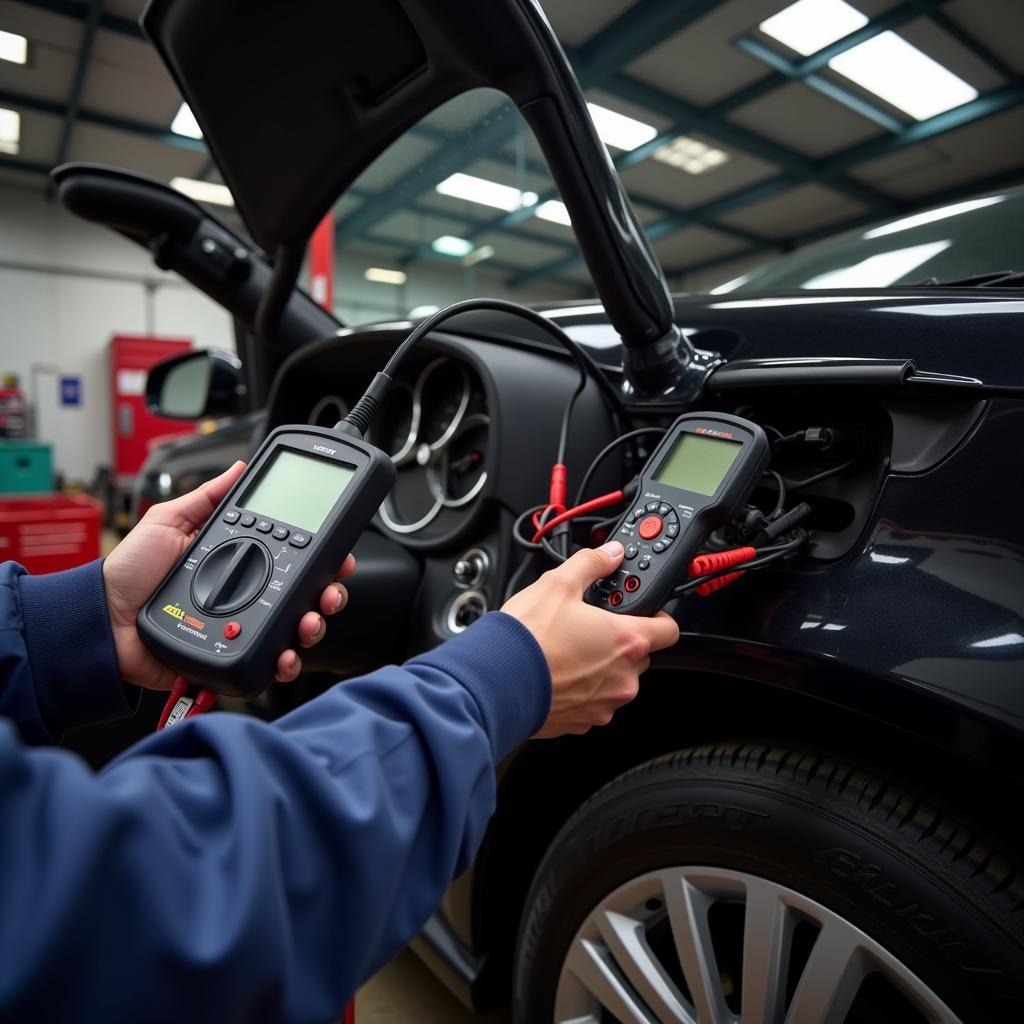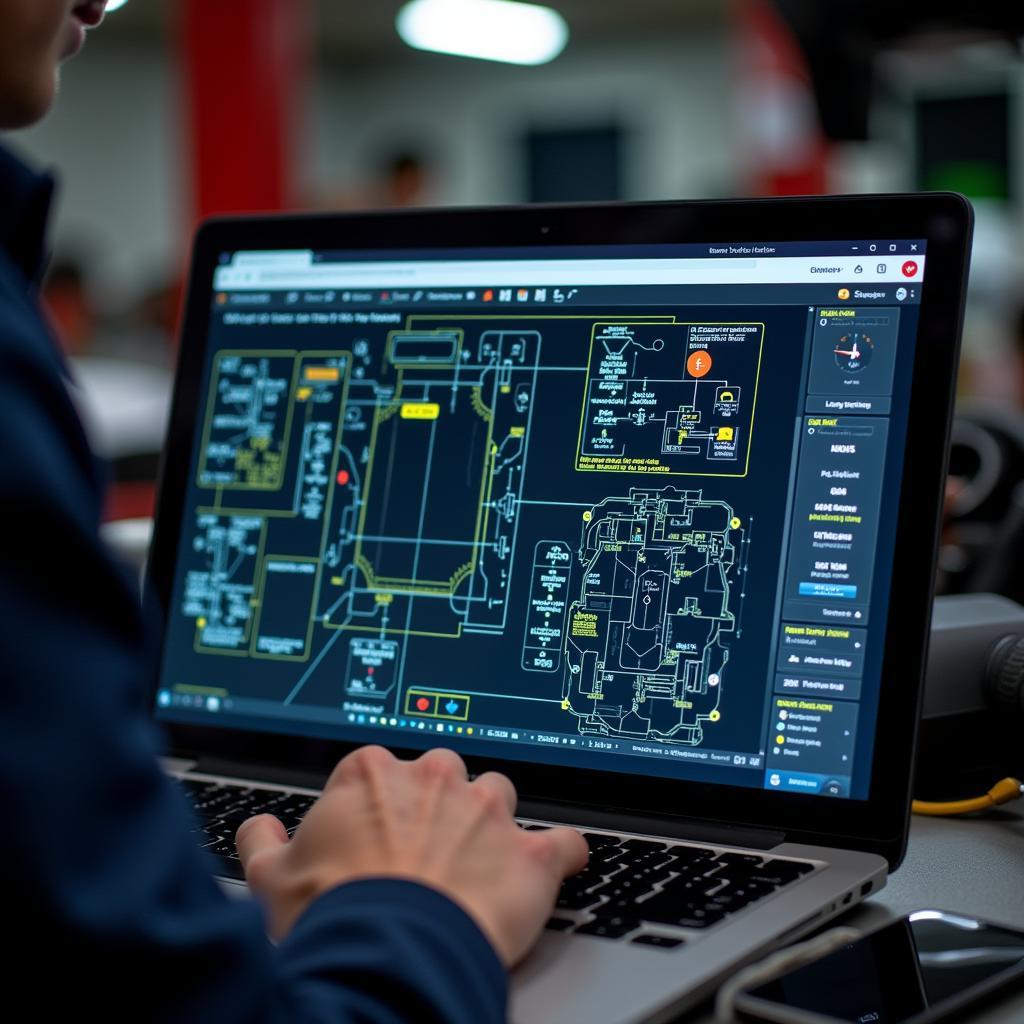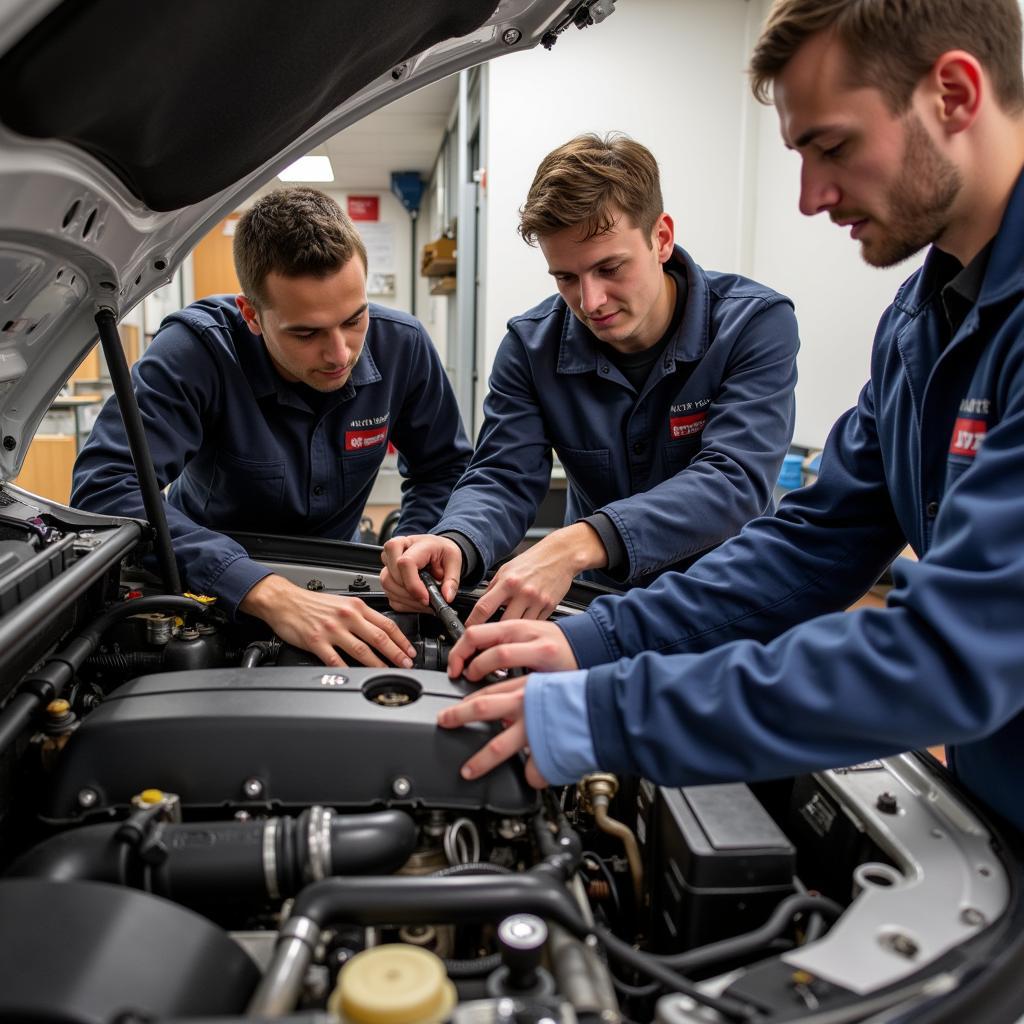Are you a career shifter looking to break into the automotive industry? This fast-paced and ever-evolving field offers a wealth of opportunities for those with the right skills. Tools For Career Shifters can range from diagnostic software and hardware to specialized training programs, all designed to equip you with the knowledge you need to succeed. This article explores the essential tools and resources that can pave your path to a fulfilling automotive career.
Essential Diagnostic Tools for Career Shifters
For aspiring automotive technicians, mastering diagnostic tools is paramount. These tools for career shifters are your gateway to understanding the complex systems within modern vehicles. From code readers to oscilloscopes, each tool plays a crucial role in identifying and resolving issues. Let’s delve into some of the must-have tools for career shifters aiming for a diagnostic technician role:
- OBD-II Scanners: These handheld devices are your first line of defense, reading diagnostic trouble codes (DTCs) and providing valuable insights into the vehicle’s health.
- Digital Multimeters: Essential for measuring voltage, current, and resistance, multimeters help pinpoint electrical faults with precision.
- Pressure Gauges: These tools accurately measure fluid pressures in various systems, such as the fuel system, cooling system, and braking system.
- Oscilloscope: This advanced tool allows you to visualize electrical signals, providing in-depth analysis of sensor performance and circuit integrity.
 OBD-II Scanner and Digital Multimeter in Use
OBD-II Scanner and Digital Multimeter in Use
Software & Online Resources: Powering Up Your Knowledge
Beyond physical tools, software and online platforms provide invaluable knowledge and support for career shifters. These tools for career shifters often offer extensive databases of technical information, wiring diagrams, and diagnostic procedures, empowering you to tackle even the most challenging repairs. Here are some key resources:
- Alldata & Mitchell 1: These comprehensive databases provide detailed repair information, including OEM service manuals, wiring diagrams, and diagnostic flowcharts.
- Identifix: This online platform offers expert-led diagnostic assistance and a vast library of real-world repair solutions.
- Online Forums & Communities: Connecting with experienced technicians through online forums provides a valuable platform for sharing knowledge, troubleshooting issues, and staying updated on industry trends.
 Technician Using Online Diagnostic Platform
Technician Using Online Diagnostic Platform
Soft Skills: The Human Element in Automotive Diagnostics
While technical proficiency is crucial, soft skills are equally important for career shifters. These tools for career shifters enhance your ability to communicate effectively with customers, collaborate with colleagues, and navigate the complexities of the automotive industry.
- Communication: Clearly explaining technical issues to customers in a non-technical manner builds trust and ensures customer satisfaction.
- Problem-Solving: Analytical thinking and a methodical approach are crucial for diagnosing complex vehicle issues and devising effective repair strategies.
- Customer Service: Providing excellent customer service builds positive relationships and fosters customer loyalty.
Finding the Right Training Programs for Career Shifters
Several training programs cater specifically to career shifters seeking entry into the automotive industry. These programs offer hands-on experience and comprehensive curriculum covering everything from basic automotive principles to advanced diagnostic techniques. These tools for career shifters provide the foundation for a successful automotive career.
 Students in Automotive Training Program
Students in Automotive Training Program
Conclusion: Driving Your Career Forward with the Right Tools
Embarking on a career shift into the automotive industry requires dedication, the right mindset, and the proper tools. By mastering essential diagnostic tools, leveraging online resources, and cultivating crucial soft skills, you can successfully navigate this exciting field. Tools for career shifters are readily available, offering a pathway to a rewarding and fulfilling career in the automotive world. Remember, continuous learning is key to staying ahead in this ever-evolving industry.
FAQ
- What are the basic tools needed for car diagnostics?
- Which software is best for automotive diagnostics?
- How can I improve my automotive diagnostic skills?
- What are the career paths in automotive diagnostics?
- How long does it take to become proficient in car diagnostics?
- What are some common diagnostic mistakes to avoid?
- Where can I find reliable automotive training programs?
Common Scenarios and Questions
- Scenario: A car won’t start. Question: What are the first steps in diagnosing this issue?
- Scenario: The check engine light is on. Question: How do I use a scanner to identify the problem?
- Scenario: A customer complains about a strange noise. Question: What techniques can I use to pinpoint the source of the noise?
Further Exploration
For more in-depth information on specific diagnostic procedures and tools, visit our other articles on DiagFixPro. We offer a wealth of resources to help you advance your automotive diagnostic skills.
Need help? Contact us via WhatsApp: +1(641)206-8880, Email: [email protected] or visit us at 910 Cedar Lane, Chicago, IL 60605, USA. We have a 24/7 customer support team.

Leave a Reply